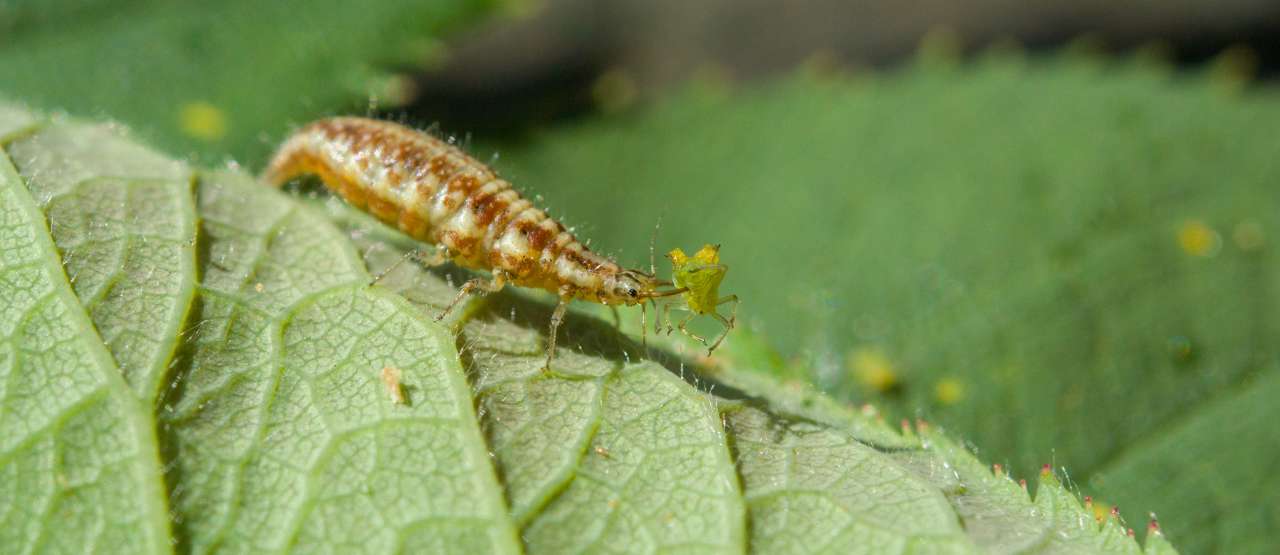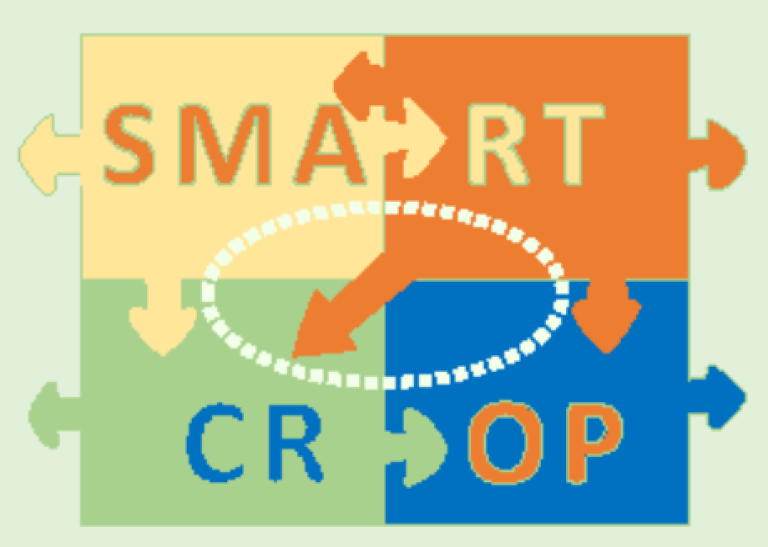Division of Biotechnology and Plant Health
SMARTCROP

End: dec 2018
Start: jan 2015
Norway has implemented EU´s Directive on sustainable use of pesticides (2009/128/EC) which promotes the use of Integrated Pest Management (IPM) and alternative approaches or techniques (IPM tools) to minimize pesticide use. There is a lack, however, of proven and practical IPM tools for farmers to use, as well as a relevant policy for a successful implementation of IPM.
About SMARTCROP
Leaflet: SMARTCROP

Partners
Contact: Ingeborg Klingen
Norwegian University of Life Sciences
Contact: Arild Vatn
Norwegian Agriculture Extension Service
Contact: Jon Mjærum
In addition there are several other project collaboration parties, and participants of the project reference group.
SMARTCROP project organisation
Full overview of the SMARTCROP project organisation
Overview of students/Post Docs in the project
Updated 23.03.2019
| Status | Active |
| Start - end date | 01.01.2015 - 31.12.2018 |
| Project manager | Ingeborg Klingen |
| Division | Division of Biotechnology and Plant Health |
| Department | Invertebrate Pests and Weeds in Forestry, Agriculture and Horticulture |
| Funding source | Norges Forskningsråd |
In SMARTCROP we aim to meet these challenges. The project is divided into 5 Work Packages (WPs) as presented below.
Primary objective:
Innovative tools, approaches and policy instruments to increase adoption of IPM strategies for a sustainable and financially viable food production.
The project is divided into 4 scientific Work Packages (WPs):
WP1: Innovative IPM tools. WP1 aims at developing new IPM tools through in-depth research of creative ideas. Future IPM systems need to be effective, precise and economically and environmentally sustainable. This WP is led by Therese With Berge (NIBIO) and is divided into 4 tasks: WP1.1. Sensor-based weed harrowing in cereals, WP1.2. Combine odours and natural enemies, WP1.3. Effect of water on pests and beneficials, WP1.4. End users assessment of suitabilty of tools.
WP2: Effects of IPM practices on pests and natural enemies, yield, farmer economy, and risk of pesticides. In this WP we will establish field trials in two annual and two perennial model crops aiming to study and demonstrate different IPM regimes. This WP is led by Nina Trandem (NIBIO) adn is divided into 4 tasks: WP2.1. Field trials for demonstration and research, annual crops. WP2.2. Field trials for demonstration and research, perennial crops, WP2.3. Lab studies on interactions, WP2.4. End users assessment of IPM practices.
WP3: Develop and implement new simulation models for pest-pest-natural enemy interactions and environmental risk of pesticides. In this WP we aim atdeveloping new simulation models for pest-pest-natural enemy interactions, refining existing pest warning models and pesticide risk models for implementation into web-based warning or DSS for northern conditions.This WP is led by Marianne Stenrød (NIBIO) and is divided into 6 tasks: WP3.1. Develop new simulation models for pest-natural enemy complexes, WP3.2. Refine existing apple scab model,WP3.3 MACRO, a pesticide fate model adapted for winter conditions, WP3.4. SYNOPS, a web-based tool for environmental risk assessment, WP3.6. End users assessment of web-based system.
WP 4: Innovative policies for a persistent adoption of intensive IPM strategies. In this WP we aim at making suggestions for innovative policies for IPM by studying consumer, wholesaler and retailer attitudes to IPM as well as policies for increased supply of IPM tools and increased farmer adoption of IPM. This WP is led by Valborg Kvakkestad (NIBIO) and is divided into 3 tasks: WP4.1. Consumer, wholesaler and retalier attitude to IPM, WP4.2. Policy instruments for increased avilability of IPM tools, 4.3. Suggestions for innovative policy measures
Participants and funding
SMARTCROP involves a reference group and several national and international partners form farmers, agricultural extension service, IPM tool companies, regulatory authorities, wholesalers and retailers. The project runs from 2015- 2018 and is funded by The Research Council of Norway (Project number 244526/E50).
Students in SMARTCROP
PhD students
| Stephanie Saussure |
PhD project title: Supervisors: |
| Roger Holten |
PhD project title: Supervisors: |
| Ming Su |
PhD project title: Supervisors: |
| Fernanda Canassa |
PhD project title: Supervisors: |
| Fernanda de Cássia Neves Esteca |
PhD working title: Supervisors: |

